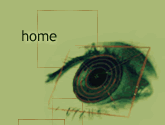|
Michael:
I remember driving back from Yosemite with you - I'm sure this
was over twenty years ago. It was after dark, I'd been driving for
quite a while, and was really tired. I pulled over and you amiably
jumped into the driver's seat of my old van. But after maybe ten
minutes you complained that lately you'd been having trouble seeing
at night, and felt it was unsafe to continue driving. I remember
grudgingly getting back behind the wheel, thinking you were malingering,
or at least exaggerating a very minor problem. Was that around the
time that you first began to notice some difficulty with night vision?
|
|
Joel
: Not really.
I remember stumbling around in the woods at night as a kid at summer
camp, feeling mortified as I realized that the others were navigating
quite confidently by the beams of their flashlights. Still, the deficiency
never seemed quite dramatic enough to deter me from driving at night,
until I was in my mid-twenties. I still felt safe enough in town,
amidst the glow of city lights and street lamps, but that sense of
security disappeared when I found myself driving along the ocean in
fog, or in the deep, impenetrable blackness of the highway home from
Yosemite that night, with you.
|
|
Michael:
How did
you learn that your difficulty seeing couldn't be corrected with glasses?
|
|
Joel
:
I'd worn glasses since about first grade, just to correct for
nearsightedness. It was completely by accident that I found
out about the RP. I Got a killer case of conjunctivitis, you
know, "pink eye," went to the U.C. San Francisco Medical Center's
Ophthalmology clinic just for that, and the doctor noticed possible
indications of the disease on my retinas. He sent me for a round
of diagnostic tests as soon as my infection had cleared up.
The tests were strange and a little surreal. When I consulted
with him about the tests results, that's when I knew.
|
|

How
much can Joel
see now?
|
|
|
|







